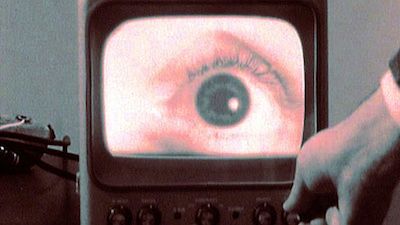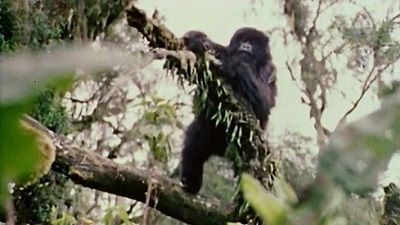The WORST episodes of All Watched Over by Machines of Loving Grace
Every episode of All Watched Over by Machines of Loving Grace ever, ranked from worst to best by thousands of votes from fans of the show. The worst episodes of All Watched Over by Machines of Loving Grace!
A series of films about how humans have been colonized by the machines they have built. Although we don't realize it, the way we see everything in the world today is through the eyes of the computers. It claims that computers have failed to liberate us and instead have distorted and simplified our view of the world around us.

#1 - Love and Power
Season 1 - Episode 1 - Aired 5/23/2011
A series of films about how humans have been colonized by the machines they have built. Although we don’t realise it, the way we see everything in the world today is through the eyes of the computers. This is the story of the dream that rose up in the 1990s that computers could create a new kind of stable world. They would bring about a new kind global capitalism free of all risk and without the boom and bust of the past. They would also abolish political power and create a new kind of democracy through the internet where millions of individuals would be connected as nodes in cybernetic systems—without hierarchy. The film tells the story of two perfect worlds. One is the small group of disciples around the novelist Ayn Rand in the 1950s. They saw themselves as a prototype for a future society where everyone could follow their own selfish desires. The other is the global utopia that digital entrepreneurs in Silicon Valley set out to create in the 1990s. Many of them were also disciples of Ayn Rand. They believed that the new computer networks would allow the creation of a society where everyone could follow their own desires, yet there would not be anarchy. They were joined by Alan Greenspan who had also been a disciple of Ayn Rand. He became convinced that the computers were creating a new kind of stable capitalism—“Like a New Planet”, he said. But the dream of stability in both worlds would be torn apart by the two dynamic human forces—love and power.

#2 - The Monkey in the Machine and the Machine in the Monkey
Season 1 - Episode 3 - Aired 6/6/2011
This episode looks at why we humans find this machine vision so beguiling. The film argues it is because all political dreams of changing the world for the better seem to have failed—so we have retreated into machine-fantasies that say we have no control over our actions because they excuse our failure. At the heart of the film is one of the most famous scientists in the world—Bill Hamilton. He argued that human behaviour is really guided by codes buried deep within us. It was later popularised by Richard Dawkins as “the selfish gene”. It said that individual human beings are really just machines whose only job is to make sure the codes are passed on for eternity.

#3 - The Use and Abuse of Vegetational Concepts
Season 1 - Episode 2 - Aired 5/30/2011
A series of films exploring the idea that we have been colonised by the machines we have built. Although we don’t realise it, the way we see everything in the world today is through the eyes of the computers. This is the story of how our modern scientific idea of nature, the self-regulating ecosystem, is actually a machine fantasy. It has little to do with the real complexity of nature. It is based on cybernetic ideas that were projected on to nature in the 1950s by ambitious scientists. A static machine theory of order that sees humans, and everything else on the planet, as components—cogs—in a system. But in an age disillusioned with politics, the self-regulating ecosystem has become the model for utopian ideas of human ‘self-organizing networks’—dreams of new ways of organising societies without leaders, as in the Facebook and Twitter revolutions, and in global visions of connectivity like the Gaia theory. This powerful idea emerged out of the hippie communes in America in the 1960s, and from counterculture computer scientists who believed that global webs of computers could liberate the world. But, at the very moment this was happening, the science of ecology discovered that the theory of the self-regulating ecosystem wasn’t true. Instead they found that nature was really dynamic and constantly changing in unpredictable ways. But the dream of the self-organizing network had by now captured our imaginations—because it offered an alternative to the dangerous and discredited ideas of politics.